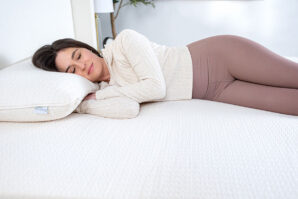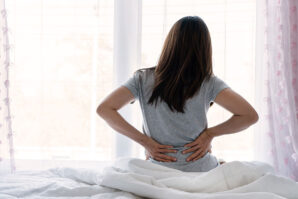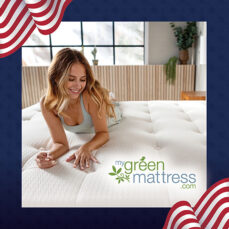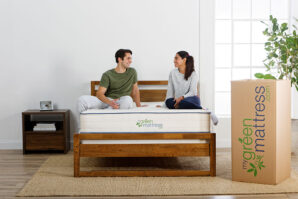One of the most important human needs is sleep. Without a restful night sleep, neither the brain nor the body can function at full potential.
Being a mattress company, we know sleep. In fact, hours upon hours goes into selecting the materials and each aspect of our designs in order to provide years of great sleep for My Green Mattress customers. After all, a restorative sleep starts with a comfortable, supportive, non-toxic mattress.
Of course in everyday life where there is sometimes stress and very often stimuli that keep us from falling or staying asleep, more than a great mattress is needed. Luckily, there are some easy ways to remedy the most common sleep disruptions.
Natural and Artificial Light
Any light coming into a bedroom at night, be it artificial or from nature, makes it harder for a body to fall asleep. In order to produce the melatonin needed for sleep, a body needs to sense darkness. The darker the room, the more efficiently the body can produce the melatonin.
The two easiest and effective ways to create more darkness in a room is to put up darkening shades and/or to wear an eye mask. Darkening shades will block any light that may enter the room through the windows, even the light that sneaks through curtains. An eye mask is helpful to have to block light from any electronics that may give off a glow or to block light that someone else in the room may be using. An eye mask is also good to have while traveling, especially since you can use it on a plane or as a passenger in a car to catch up on sleep.
Blue Light
Blue light most often comes from televisions, computers, cell phones, or anything else with a screen. It also comes from fluorescent bulbs and LEDs. Not only can the light effect you if it’s on in the room you sleep in while you sleep, but it also impacts your ability to fall and to stay asleep if you are using blue light emitting devices even two hours before bedtime.
“Research has found that exposure to blue light suppresses the production of melatonin more than any other type of light. It is believed that the shorter wavelengths in blue light is what causes the body to produce less melatonin because the body is more sensitive to this type of light (Live Science).”
The easiest fix is to keep any blue light emitting devices out of the bedroom and to stop using them each evening two hours before going to bed. However, many people are not willing to give up those two hours of time. For this, you can wear blue light blocking glasses while using a device. There are many brands now easy to find via a Google search.
Noise
Even if you don’t fully wake up from noises that occur while you sleep, they can still affect your sleep cycles. In fact, one research review shows that numerous studies have linked nighttime environmental noise exposure and cardiovascular disease, and that even low-level noises may impact health due to sleep disturbance.
Turning off anything that can be switched off that makes noise is the first step, but often the sounds entering a room come from outside sources that we can’t control. Using something that produces white noise is a key to counteracting the effects of environmental noise. “White noise works by reducing the difference between background sounds and a “peak” sound, like a door slamming, giving you a better chance to sleep through it undisturbed”(Sleep Foundation).
White noise can be created using anything that gives off a soothing consistent sound, like an air conditioner, a fan, or an air purifier. You may opt to purchase a sound machine that can produce a variety of soothing sounds to drown out the disruptive kind.









